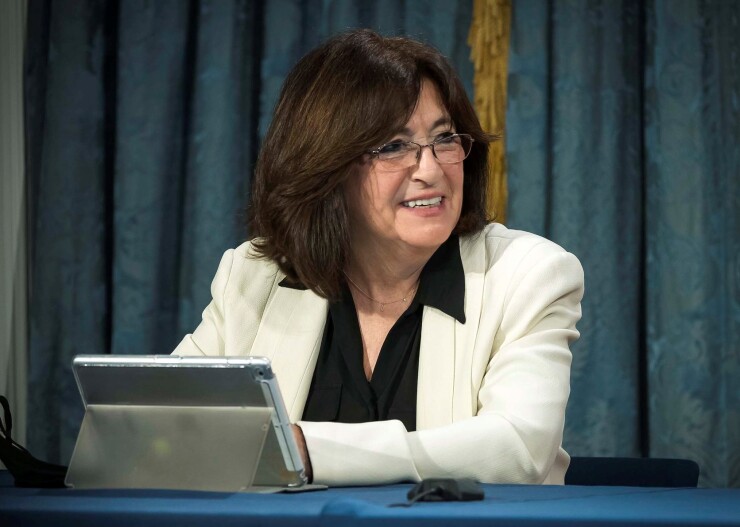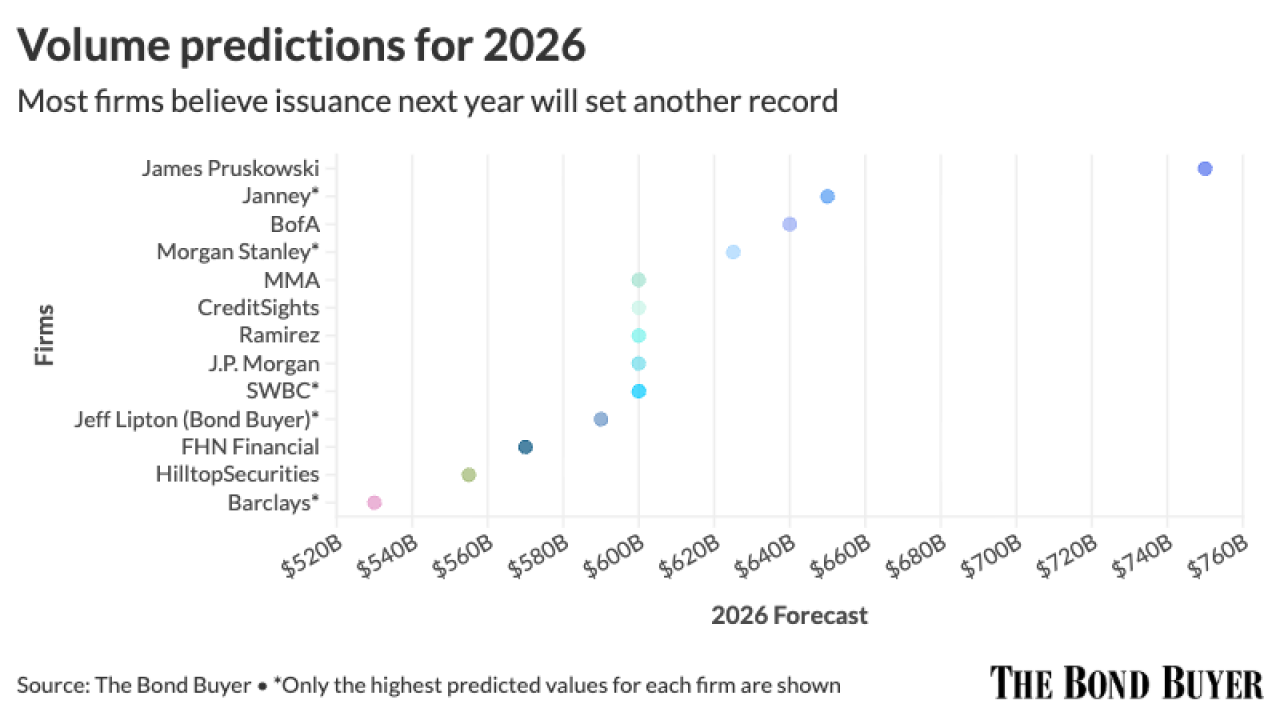The restart of $17 billion of capital projects stalled under COVID-19 bodes well for New York City's recovery, Mayor Bill de Blasio said.
By the end of March, more than 1,700 projects will have the go-ahead to resume, de Blasio told reporters on Monday.
School construction, affordable housing, major library projects, park and sewer upgrades, and pedestrian and cyclist safety measures will be among the priorities, according to the mayor. “That $17 billion is going to make a huge impact and help New York City come back strong."

The City Council, which is considering de Blasio's $92.3 billion preliminary budget, held its first hearing on the spending plan Tuesday. The city's preliminary 10-year capital strategy for fiscal 2022 through 2031, totals $119 billion.
New budget director Jacques Jiha said a drop in the overall property tax forecast, due to the decreased value of commercial and rental properties, had pushed the city's projected gap to $5 billion in January from $3.8 billion in November. The city, he said, "leaned aggressively" on its savings program and sidestepped deficit borrowing or federal aid assumptions in balancing its plan.
"We are still the midst of an unprecedented health and fiscal crisis," Jiha said. "However, we firmly believe New York City will recover faster than many people expect as social distancing requirements ease, the stimulus impacts are felt and consumers unleash pent up demand."
After Gov. Andrew Cuomo’s emergency declaration when the coronavirus surged last March, city officials
“I have really firsthand knowledge of how devastating this pandemic has been to so many architects, engineers, and construction professionals,” said senior advisor and so-called recovery czar Lorraine Grillo, who is transitioning from her roles as commissioner of the Department of Design and Construction and chief executive of the city’s School Construction Authority.
DDC is the design and construction manager for much of the city’s capital portfolio, working with other city agencies and the Mayor’s Office of Management and Budget.
“I've been especially concerned for MWB/E [minority and women business enterprise] contractors, small contractors who've struggled over the last year with these — when these projects were paused," Grillo said.
Monday’s announcement came as the watchdog Independent Budget Office forecast a
“The recovery will remain closely tied to the success of public health efforts to slow the spread of COVID-19 and reduce its impact on the economy,” said IBO economist Cole Rakow.
State Comptroller
Local cases have trended downward since the last peak in mid-January, but along with hospitalizations and deaths, remain high relative to the rates of last summer and fall. While the vaccination rollout is gaining momentum, New York statewide remains below the national average for the percentage of the population vaccinated.
“All of this suggests the city’s economic recovery will remain slow and fragile until greater and more sustained progress is made to increase the vaccination rate and reduce the number of cases, allowing for the safe resumption of some semblance of regular economic activity,” Rakow said.
According to Rakow, estimates show New York Stock Exchange member firms to have posted $45.8 billion in profits for the year, or 63% greater than the $28.1 billion recorded in 2019.
Testifying before the council's online hearing, IBO Director Ronnie Lowenstein cited "a number of uncertainties" that could challenge the city economically and fiscally, notably the duration of the pandemic.
"There also is the issue of behavioral changes: Will some substantial portion of the workforce continue to work remotely all or part of the time, and will travelers for business or leisure return to the city? These are vital questions for the retail, leisure and hospitality sectors of the local economy that have been particularly hard hit by the pandemic," she said.
Other variables, according to Lowenstein, include the fiscal health of the state-run Metropolitan Transportation Authority, which operates mass transit in the city; unspecified labor savings; and mid-year state cuts to cities and school districts.
The state’s budget troubles present additional challenges, city Comptroller Scott Stringer said. Over the last five years, according to Stringer, the state has already pushed $1.3 billion in costs onto the city. This year’s budget, he said, would cut back $800 million in state education funds, substituting federal funds from December’s stimulus bill instead, plus another $220 million in other costs.
"The state’s long-term budget prospects could leave us facing even bigger shortfalls in the future, at a time when we will need to make investments to build the new economy of our city," Stringer said.





